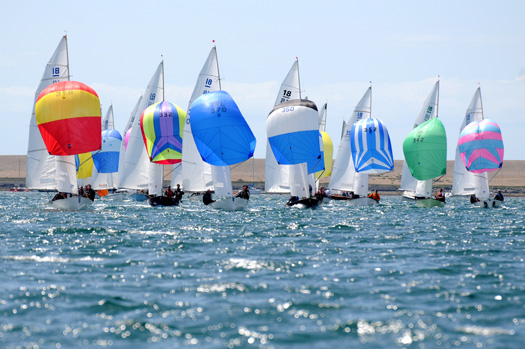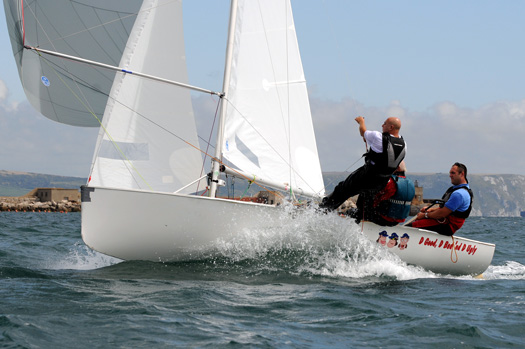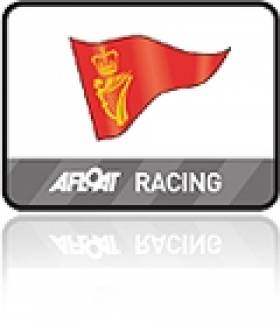Displaying items by tag: Willie Healy
Royal Cork Aims for Biggest Ever National 18 Turnout
The Royal Cork YC aims to host the largest ever gathering of National 18's this summer. The 2011 class championship, better known locally as the Cock O' The North, will take place at RCYC in Crosshaven from Sunday 24th to Friday 29th July. In excess of 50 boats are expected to participate. Latest Royal Cork News here.

The class has roots all over Ireland and the United Kingdom. Traditionally the event sees entries from Scotland, London, Cork and Isle of Man. While strong numbers will travel as always from those centres, a feature of this year's event is the addition of entries from Lymington, Gloucester, Swansea, Lough Derg, Lough Neagh, Waterford, Schull, Ballydehob and Baltimore.
The event will cater for all National 18s whether old or new. The fleet will have three distinct divisions at this year's championships. The modern fleet will be known as Ultimate's, with the older fibreglass boats going into the Penultimate division while the original wooden clinker boats will race in the Classic division.
At the front of the ultimate fleet the competition will be intense with Anthony Ellis and crew from the Isle of Man doing their best to retain the crown that they won on home waters last season. However they will face a huge challenge with the likes of Colin Chapman, Nick Walsh and Tom Crosbie from the host club as well as the Barry brothers, Colin and Ewen from Monkstown Bay.

In the penultimate's class the fleet is seeing many older fibreglass boats being refurbished and brought out for the event. Expect to see Willie Healy on 'Break Even' and Grattan Roberts on 'Manniken P' feature strongly.
While the intention among the classics is that racing will not be as intense this division expects to see approximately ten boats from both home and abroad. Wolfgang Felder is travelling from Germany to participate alongside well known Cork sailors like Dick Gibson, Dan Cross and Tom Kirby. An interesting piece of history is that John Murphy of Baltimore SC will race in 'Tornado' which was the first winner of the Cock O'The North back in 1952.
Many former 18 sailors are making their way back to the class in recent times. The likes of John Crotty, Patsy O'Mahony and Bobby Kerr are expected to make it to the start line for this season to add a further element of experience to the fleet.
Among the many trophies to be raced for will be two trophies originally won by the late Richard Lane in Doldrum at the 1961 Championships sailed at Mumbles. The Lane family has kindly donated the trophies to the class and they will be raced for 50 years after Doldrum swept the board at the Welsh venue. While there has been no 18 activity at Mumbles in recent years it is expected that a crew from the club will race this year after the launch of a new pilot project by the class to stimulate 18 sailing in Wales.
Another interesting note to this event is the recent approval of carbon fibre masts and with up to 20% of the fleet already having switched over, eyes will be focused on any improved performance.
Like any good sailing event as much effort has been put into the social aspect. A full week's social programme has been planned ranging from a Christmas party to the Class Dinner. The Class Dinner will also serve as a reunion for former 18 sailors and it is expected that 300 people will attend what will be an historic occasion. All this sailing and socialising is thirsty work and so the class has commissioned a special beer for the week to be known as 'Cock a Doodle Brew' to mark the event.
For more information on the event go to www.national18.com.





























































